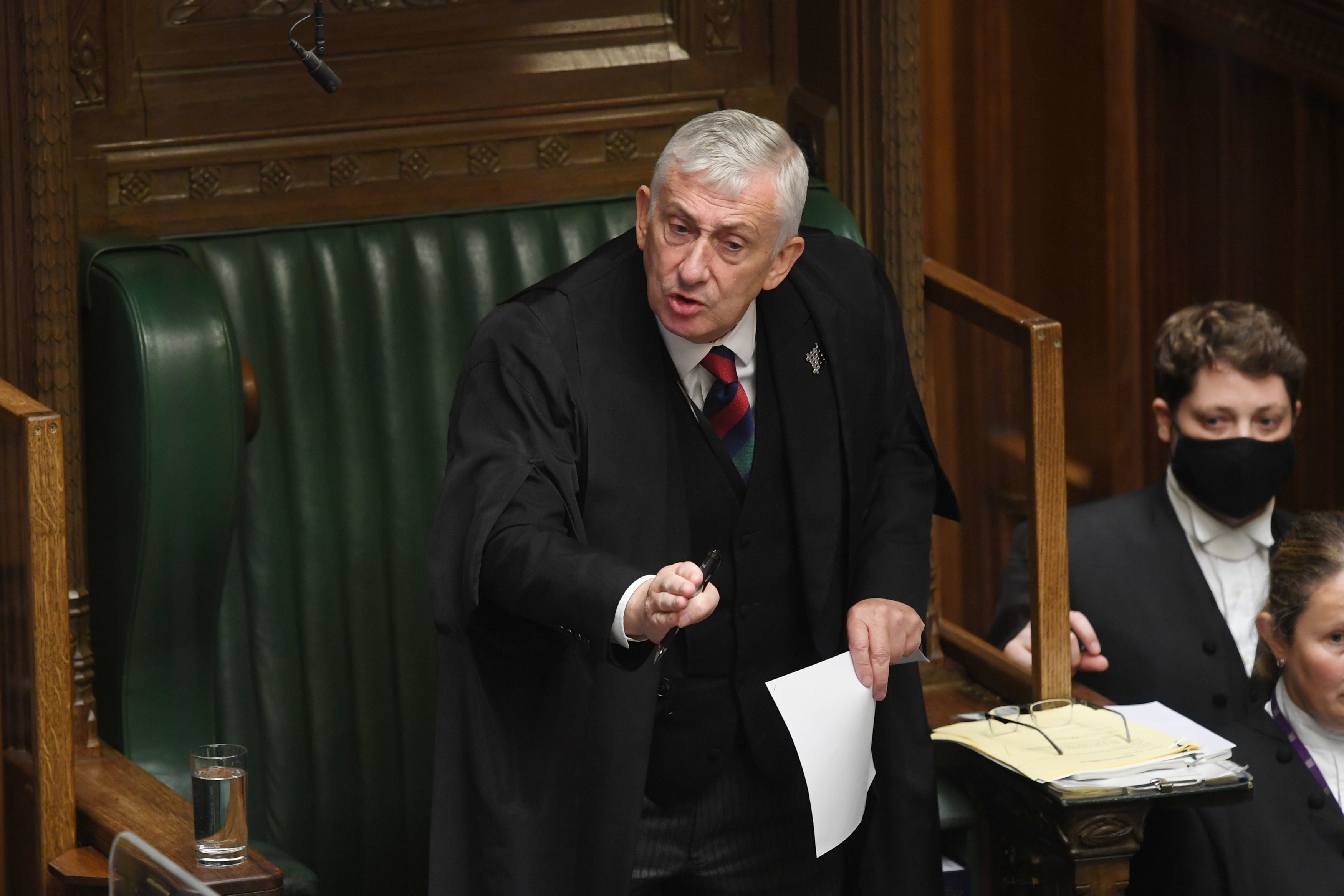The speaker of the House of Commons has humiliatingly little influence
Editorial: Sir Lindsay Hoyle and those who supported his bid for the speaker’s chair may be wondering what has gone wrong

The speaker of the House of Commons, Sir Lindsay Hoyle, was elected by MPs to succeed John Bercow largely because he wasn’t John Bercow. So it has proved.
Sir Lindsay chose not to play an activist role in the Brexit debates, and restored the executive’s brief loss of control over the business of the House. MPs on all sides, but particularly Brexiteering Tories, found this Labour MP a refreshing change, less self indulgent, less personally withering to the more outre members of the legislative assembly, and less pompous. His Lancashire burr seemed to embody a new mood of quiet, confident chairmanship. So it did.
Now, though, both Sir Lindsay and those who supported his bid for the speaker’s chair may be wondering what has gone wrong. Once again, the Commons has landed itself in disrepute, and the speaker has humiliatingly little influence. A single case of wrongdoing by one MP has mushroomed into a national scandal that has overtaken every other political issue, and wiped away the Conservatives’ lead in the opinion polls.
The prime minister should never have gone near what was always a matter purely for the house. That he did so also raises his own conflict of interest, which is that he himself faces an awkward inquiry or two by the independent commissioner of parliamentary standards, Kathryn Stone, who has levelled sharp criticism at Boris Johnson in the past. A whiff of corruption has become a stench.
There are signs that many MPs, including some Tory MPs coerced or duped into voting for the aborted bogus reforms, realise the scale of the failure. Certainly the speaker does. He has found the behaviour of ministers over the months since he took office exasperating. Leaks and official announcements alike are given to pet media outlets before the Commons – up to and including the Budget. Ministers treat the place with contempt, despite their usual courtesies. They merrily ignore the rules on ministerial conduct and on MPs’ conduct and, when things go wrong, do their level best to evade the consequences.
The public don’t like it, and the speaker fulminates against them. However, all of Sir Lindsay’s protestations and righteous anger has been in vain. He can’t do much except drag ministers to the house to answer urgent questions, and grant the opposition emergency debates – which he should be doing anyway. Neither sanction exactly terrifies cabinet ministers schooled in the Johnson Way of doing things.
To keep up to speed with all the latest opinions and comment sign up to our free weekly Voices newsletter by clicking here
Sadly, Sir Lindsay cannot do very much to stop the executive treating the legislature with contempt, which it will always be tempted to do with an effective majority of 85. The reason why Speaker Bercow was so powerful in the latter months of his tenure was that Brexit so fractured the party system in the Commons that he alone was able to command a majority in the house – almost all the opposition MPs, plus a sizeable number of Conservative or expelled Conservative members who backed his attempts to assert the prerogatives of the house.
Thus far, Sir Lindsay, liked though he is, has no such majority and no such authority. The emergency debate in fact merely highlighted his weakness. The leader of the opposition, Sir Keir Starmer, turned up – but the prime minister pointedly declined to attend, sending along, as is his habit, a relatively junior cabinet minister, Patrick Barclay, to signal his disdain.
Maybe, as Sir Lindsay seems to think, the Commons will soon assert its authority with a view to restoring public faith in its integrity. The more likely outcome at the moment is that some Conservatives, particularly in safer seats, see no reason for any radical change to interrupt their highly lucrative fun. The one thing we know about that arrogance is that it will feed into the narrative of extremists that parliament is a mere talking shop, that politicians are in it for themselves, they don’t play by the rules, and that the democratic process itself doesn’t work because it’s dominated by a corrupt elite, and is not to be trusted by the people. It’s tragic.
Join our commenting forum
Join thought-provoking conversations, follow other Independent readers and see their replies
Comments
Bookmark popover
Removed from bookmarks